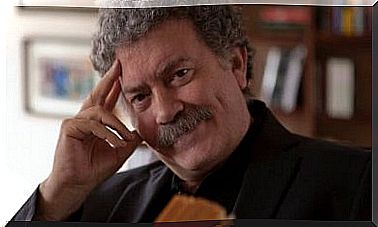Zeigarnik Effect: The Anguish Of Not Being Able To Finish What Has Already Started

The Zeigarnik effect reminds us that the brain doesn’t like to leave things unfinished or, worse, to be given ambiguous or inaccurate information. This explains, for example, why it is so uncomfortable to stop reading a book that interests us.
This characteristic would also be behind the anguish experienced when someone leaves us without an explanation.
Film and television directors are very familiar with this psychological phenomenon. That’s why they’ve used, for decades, the well-known Cliffhanger effect to retain their audience.
This technique consists, as you may already know, in leaving the moment of greatest tension, greatest effect and emotion possible just for the end of chapters or film productions.
This abrupt and unexpected conclusion forces the viewer to direct their attention to the plot and envelops them. However, it has also become clear that we are often tired of this type of resource because we know we are being manipulated.
In everyday life, almost hopelessly, we are subject to this mental mechanism as interesting as it is sophisticated.
Cognitive psychology has always been interested in the Zeigarnik effect and also in the intrusive thoughts that often arise in our minds about a pending task or an unfinished situation.
What’s more, this phenomenon could also explain why we often feel more sorry for those things we didn’t do than for what we did and didn’t turn out to be ideal.

The Zeigarnik effect and an Austrian restaurant
We are in 1920, in a small restaurant in Austria. There sits a young Russian psychologist named Bulma Zeigarnik. She is a little impatient because her teacher Kurt Lewin is late.
At one point, she stopped looking at her watch and paid attention, like a good scientific observer, to what was happening around her.
She realized something very curious. The waiters had a haunting memory for remembering every order from every customer. No matter how complex the combination of dishes and types of drink was, they never failed.
However, Bulma was also able to appreciate something even more striking: when customers paid the bill, the waiters instantly forgot each person’s orders.
Nevertheless, in their brains still lingered every detail of those other orders that hadn’t gone through the cashier. In other words, unfinished transactions behaved like pending tasks that the brain could not forget, they were unfinished accounts and, therefore, impossible to forget.
Young Bulma Zeigarnik did not take long to return to the University and begin her famous study, which would finally be published in 1927 under the title “On Finished and Unfinished Tasks”. In Portuguese, about finished and unfinished tasks.

The anguish of the unfinished or unfulfilled
It is often said that the unfinished or the unfinished contains a singular beauty. There is in this sentence a certain melancholy and sadness, a strange anguish for everything that was not, everything that cannot be finished or even that which could not even be tried.
We even have unfinished works, such as Franz Schubert’s Symphony 8, an incredible piece of music according to experts, which the author himself was forced to leave half unfinished because of an illness.
These phenomena, such as feeling bad for not having the courage to enter into a relationship with a person, are what authors Savitsky, Medvec, and Gilovich (1997) describe as painful omissions.
This kind of situation also causes other things. It makes us feel uneasy, angry or disconsolate when people don’t answer our questions, when they promise us things that later aren’t fulfilled, when affective relationships are ended without being able to identify very well the cause of the end.
The brain doesn’t like ambiguity
Schiffman and Greist-Bousquet (1992) conducted research at the University of Michigan in which they demonstrated another feature of the Zeigarnik effect. The brain doesn’t like ambiguity. In other words, the fact of not being able to finish something and not understanding something is equally distressing.
It’s also uncomfortable when ambiguous information emerges that makes us question everything we previously believed.
An example. In television history we always see programs that recreate the Lost phenomenon . Lost was a series shown between the years 2004 and 2010, and it was an experience of great psychological impact for many people for different reasons, especially for its ending. For a good part of viewers, it was too ambiguous and difficult to understand.
In this case, the Zeigarnik effect was twofold. Many questions were left open, unanswered, and those offered were not sufficiently enlightening to many of the program’s followers.
Perhaps this fact was responsible for the fame and impact of this series even after its end.
To conclude, there is a fact that is also worth reflecting on. Like it or not, our everyday reality and the fabric of life are always marked by the Zeigarnik effect.
There will always be one aspect or another that will go unanswered, that will be ambiguous and even inexplicable. We often need a personal inference, like when we see a David Lynch production.
We must be able to tolerate uncertainty, as it is part of life. Tolerate those gaps that logic does not enter. Life is not a video game, that world where we can take a break in the middle of combat and restart later if we want.
Sometimes there are aspects that cannot be taken up and that will remain forever pending in the universe of our mind. This is something we must accept.
In any case, it is always interesting to understand and delve into these psychological phenomena to understand the way in which our wonderful brain works and the uniqueness.









